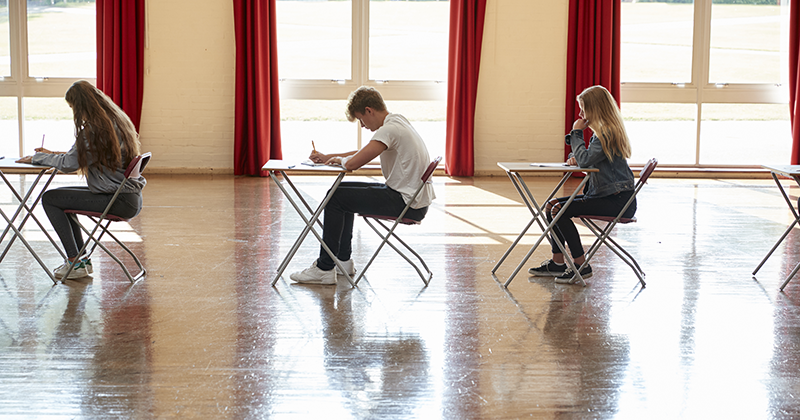Schools have been allowed to opt out of providing a daily act of Christian worship to teach pupils about “looking after the planet” and mindfulness instead – with one head concerned youngsters would be withdrawn if the rule was kept in place.
Seventy schools have been granted exemptions from the legal requirement to provide Christian worship since 2018, a Schools Week investigation has found.
Since 1944, schools must hold a daily act of worship that is “wholly or mainly of a broadly Christian character”.
However, many schools don’t follow this, surveys suggest. The policy is now under the spotlight again after the high court upheld the Michaela Community School’s prayer ban.
Paul Smalley, executive assistant to the chair of the National Association of Standing Advisory Councils on RE (NASACRE), said: “There needs to be a fresh look by government at the legislation and the guidance around collective worship and determinations.”
Diversity and citizenship
Local authority-maintained schools and academies can opt out of the requirement by applying to their town hall’s SACRE or regional directorate, respectively.
“Determinations” last for five years, but schools must still provide an alternative form of collective daily worship. These cannot be “non-religious assemblies”.
Since 2018, the Department for Education said 23 academies sought an exemption.
Meanwhile, LA-maintained schools accounted for 46 of the determinations approved since 2018, according to freedom of information figures from 97 councils obtained by Schools Week.
But many councils did not hold this data, suggesting the true number is likely higher.
Last year, 18 schools and academies were granted exemptions or renewals.
In May, Edith Neville Primary School in Camden was granted an extension. Its demographic is “about 90 per cent Muslim”, documents state.
Head Ruby Nasser said in the application: “I fear that there would be withdrawals [from collective worship] if a determination were not in place, which I believe would disadvantage the spiritual development of those children.”
Parents have the right to remove under 16s from collective worship. Older pupils can withdraw themselves.
Nasser said alternative “themes are linked to our whole school topics: wellbeing, diversity and inclusion, being a local and a global citizen, looking after the planet and aspirations”.
The school also has “reflections on different religions and festivals”.
‘Daily reflection time’
Chalkhill Primary School and Oliver Goldsmith Primary School, both in Brent, north-west London, were allowed to opt out. Many of their pupils are non-Christian.
Chalkhill headteacher Shabiha Sayed said they would have “daily reflection time in the classroom; whole school collective worship three times a week; classes delivering assemblies, which focus on religious occasions and celebrations across all faiths”.
Weekly PSHE sessions also “allow for mindfulness and reflection time”.
Primrose Hill Primary School in Camden was granted a renewal in 2021. A professional advisor to Camden’s SACRE said she’d previously attended a school assembly and was “impressed with it, and with the song that the children had sung about supporting refugees”.
At the time, the schools collective worship policy said themes “often have a social, moral, spiritual focus depending on what is happening in the world”, or focus on “reinforcing the school rules or developing healthy eating”.
‘It’s unlikely anyone is checking’
The latest figures appear to show a trend of fewer schools getting exemptions. Schools Week previously reported that in the 18 months to April 2017, 46 were granted.
Last year, NASACRE warned the “majority of SACREs still do not get a sufficient share of the central school services block to enable them to carry out their duties well”.
Ofsted stopped inspecting collective worship in 2004 after 76 per cent of schools were non-compliant.
Smalley added if schools don’t follow the law, it’s “unlikely anybody is going to do anything”.
A 2022 Teacher Tapp survey of 8,234 respondents found 57 per cent said they did not hold a daily act of collective worship.
But Smalley said the legislation should be “interpreted quite broadly” as themes such as being a good global citizen and looking after the environment are “actually values that are of a broadly Christian nature”.
‘No plans to review policy’
Academies minister Baroness Barran told the National Secular Society last month the DfE has “no plans to review its policy on collective worship”.
In a letter to the National Secular Society (NSS), she said the policy “encourages pupils to reflect on the concept of belief and the role it plays in the traditions and values of this country”.
“It also serves as a mechanism by which schools can develop and celebrate their ethos and values.”
She also said it was “not permissible for an exemption to be granted” to replace collective worship with “non-religious assemblies”.
Poulner Infant School had a request for an exemption snubbed by Hampshire County Council’s SACRE in July 2022, which NSS flagged as an example of a school being denied permission for “secular assemblies”.
The school told SACRE that “theirs was a community school not a faith school”.
Stephen Evans, NSS’ CEO, added “laws mandating worship have no place in a modern education system… the obligation should be removed from school leaders”.











